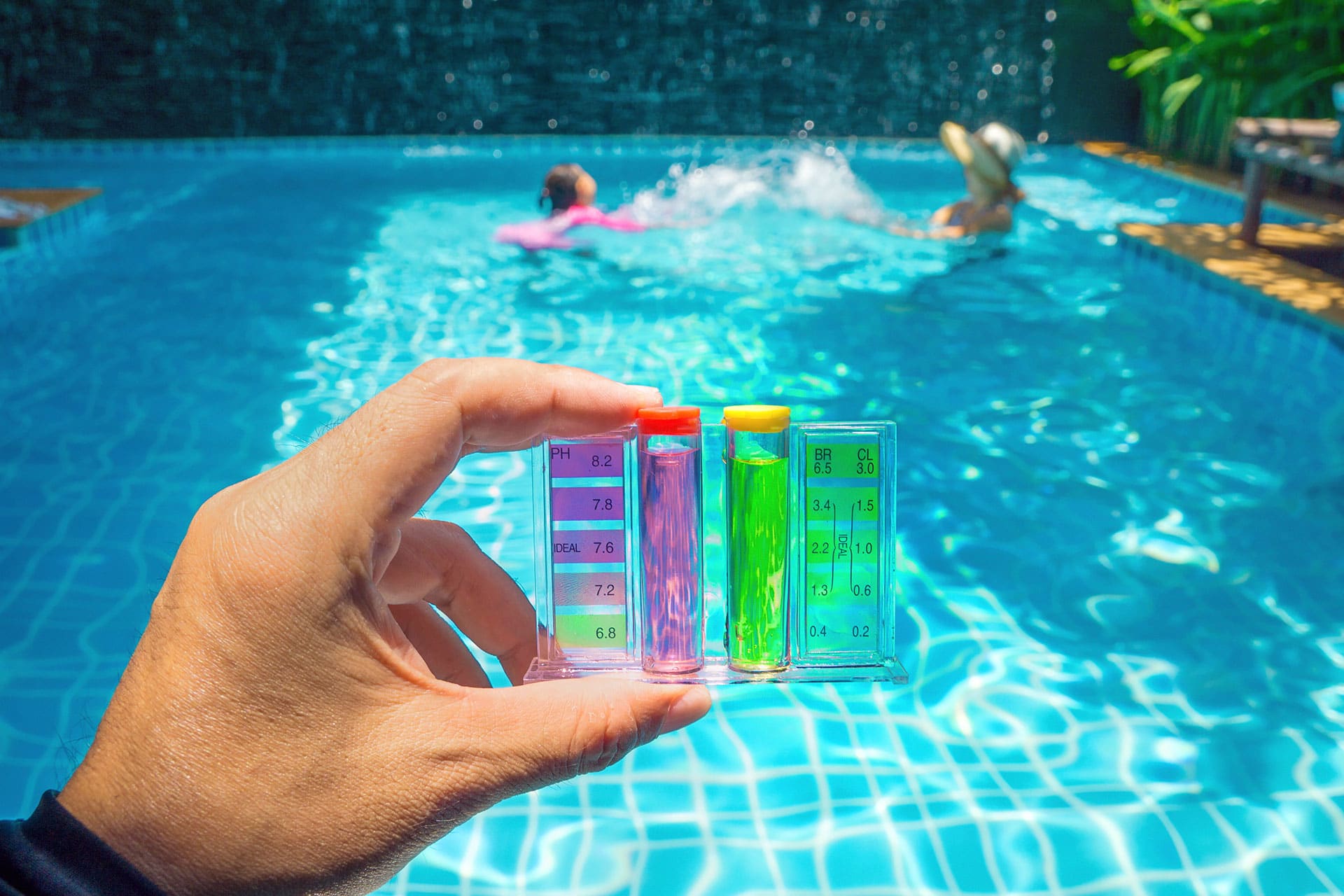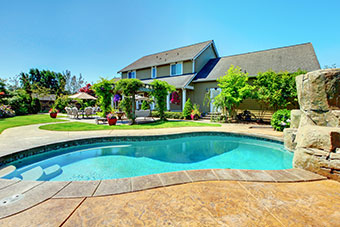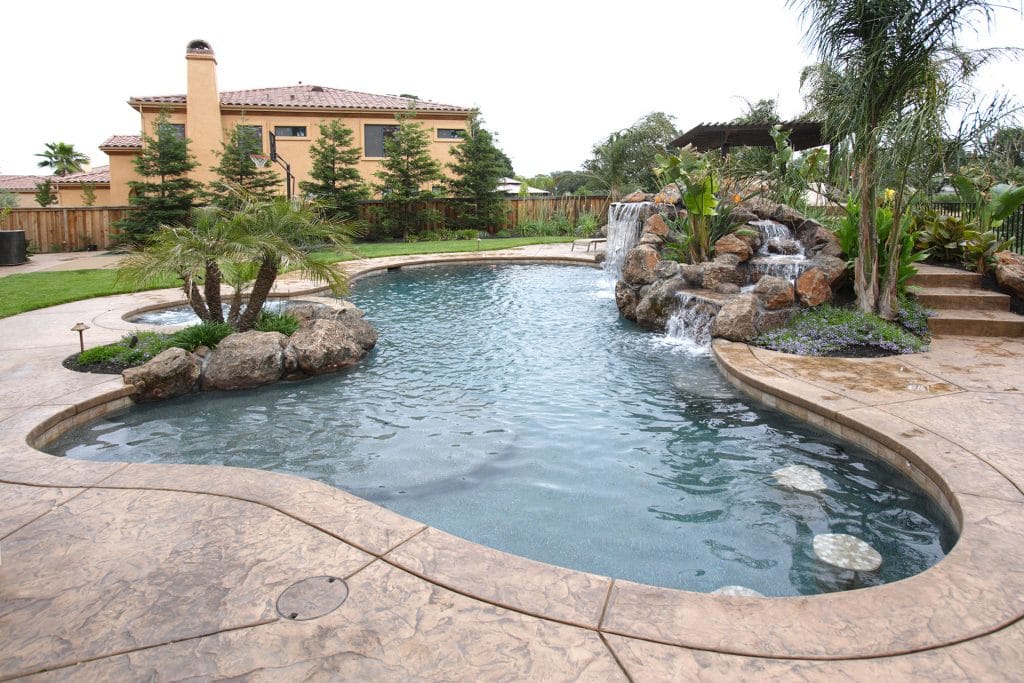Why is it important to maintain chlorine levels in your pool?
You are ready to splash around in your swimming pool and beat the summer heat. But is your pool safe to swim in?
When your pool is in use, a lot of organic matter and other contaminants gets into the pool including sweat, saliva and the chemicals present in cosmetic and grooming products. In addition, dust and debris from the environment also contaminate the pool. It is important to maintain high levels of hygiene so that your pool remains free of pathogens that can make you sick.
How can you keep your pool clean, sanitized and free of bacteria and other contaminants? This is where chlorine comes to the rescue. Chlorine destroys or inactivates germs and micro-organisms that are known to cause infections and diseases. That’s why adding chlorine is critical to maintaining a clean and healthy pool.
However, it is also important to maintain chlorine levels within the recommended range. It should stay between 1 – 3 ppm (parts-per-million) for residential pools. Any lower will render chlorine ineffective in disinfecting the water and higher levels will cause red eyes and itchy skin. The levels of chlorine depend on a lot of factors and tend to change very quickly. It is, therefore, important to test chlorine levels on a daily basis.

When are the chlorine levels in your pool too low?
Chlorine is added to the swimming pool to get rid of harmful bacteria, parasites and algae. Low chlorine levels will:
- Allow microbes to grow and thrive in the pool water, making your pool unhealthy and unsanitary to swim in
- Make the pool water cloudy
- Choke and clog the filters
- Cause scale formation
- Discolour the pool walls
How do you adjust low chlorine levels? You will have to shock the pool water by adding high amounts of chlorine. It is also important to remember that chlorine loses its effectiveness when the pH is high. It’s better to maintain the pH levels of your pool water between 7.2 to 7.6 for the chlorine to be effective in doing its job. The pH of the human tear is 7.4. Keeping pH levels around this range allows chlorine to be effective and causes far less irritation to the skin and eyes.
When are the chlorine levels in your pool too high?
While chlorine makes your pool clean and keeps it free of germs, it also has adverse effects on your health, not to mention that chlorine has a very sharp, distinctive smell that some people may find very overwhelming and uncomfortable. High levels of chlorine in your pool reduce the pH levels and make the water more acidic than it should be and this causes:
- Itchy and dry skin
- Stinging ears
- Dry hair
- Irritation in the eyes and nasal passages
- Lung irritation and breathing problems
- Damage to pool surfaces, tiles, grout and stone
- Damage to pool pump, heating system, filters and other metal equipment
How to bring down high chlorine levels? Turn down the chlorinator or chlorine feeder and if you use a pool cover, take it off and let the water get exposed to the sunrays. Chlorine levels drop very quickly in the presence of sunlight. You can also use neutralizing chemical agents if you are looking to bring the levels down within a short period of time.
In addition, maintain the pool chemistry
Make sure that the water in your pool is balanced. This includes maintaining the levels of pH, total alkalinity, chlorine and calcium hardness within the recommended range. Maintaining the chemicals and other parameters in the right amounts and ranges will help keep your pool crystal clear, sanitized and healthy. Keep in mind that abnormal levels of chlorine will also disturb the water balance and pool chemistry.
Is your pool in need of a remodel? Have you been thinking about upgrading your backyard with an outdoor kitchen, deck or pergola? Call Splash Pools at 844-977-5274. We are your local, reliable and qualified pool contractor in the DFW area.



